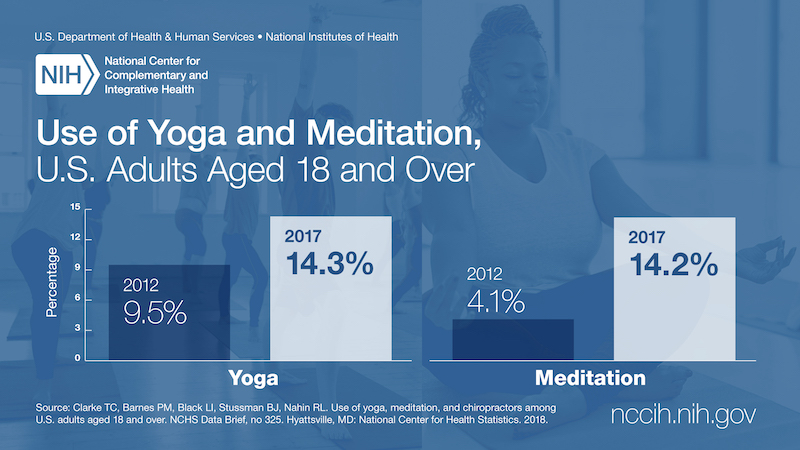Part
01
of one
Part
01
Complimentary Health Psychographics
Online American consumers of complementary, alternative and integrative health approaches
have a preference for buying associated products and services online, and are more committed to purchasing goods that are consistent with their values than saving money or staying with the same brand. Notably, publicly available information specifically about online adopters of these practices and products is somewhat limited, as it is generally dated, very narrow in focus and/or inclusive of other consumer groups. As such, the research team has complimented available details about the psychographics of online consumers of these goods and services with information about this cohort in general, where appropriate, to provide a more robust and meaningful profile.
Values
- Although information in the public domain specifically about online American consumers of complementary, alternative and integrative health approaches is limited, available data indicates that these individuals are devoted to products/brands that are consistent with their alternative health values and also have a strong (if sometimes conflicting) appreciation for convenience.
- According to health and technology expert The Healthcare Guys, US and other online consumers of complementary, alternative and integrative health products such as natural healthcare goods are often attracted to e-commerce because of its much wider array of available organic, chemical-free and other alternative product types.
- Notably, these consumers in many cases choose to "search for...alternatives to mainstream products...for years" in order to obtain goods and services that are consistent with their alternative healthcare values, rather than settling for what is more readily available in brick-and-mortar retail stores.
- This commitment to practicing alternative health values through purchase behavior is accented by the fact that individuals in this cohort also have a significant appreciation for convenience, and defer the value they place on convenience in favor of finding the right products and services.
- However, where possible, these consumers will adjust purchase behavior to avoid long checkout lines, skip traffic and/or "make a purchase even if it's a public holiday."
Spending Habits — Channels
- Consistent with the value that online consumers of complementary, alternative and integrative health approaches place on convenience, these e-commerce shoppers have a clear preference for making their purchases online.
- Notably, market researchers including Grand View Research forecast that organic, natural and other alternative healthcare product sales will be "fueled" in the coming years by the growth of "e-commerce stores catering to the demand" from these consumers, who are expected to purchase more when their preferred product types are available through online channels.
- Moreover, The Healthcare Guys reports that this cohort of online consumers of alternative health approaches is expanding, amid a "growing preference among consumers for purchasing...online" as a whole.
- Meanwhile, these consumers favor a variety of e-commerce venues, including independent brand websites and natural product marketplaces.
Spending Habits — Decision Factors
- In terms of spending decisions, online consumers of complementary, alternative and integrative health approaches are less price-sensitive and more open to adopting new brands.
- Industry experts including integrative health marketplace Fullscript note that integrative medical services are generally not covered by most insurance companies, and that many consumers are reluctant to pay the associated out-of-pocket costs.
- However, adopters of alternative health approaches are willing to pay higher prices and/or purchase services not covered by insurance if they are clear about the benefits and how they fit with their values.
- The findings from Fullscript are corroborated by slightly dated (2016) research from the journal of BMC Complementary Medicine and Therapies, which concluded that adopters of complimentary and alternative medicine (CAM) in general have a "willingness to pay out-of-pocket for CAM services and products" due to their commitment to this system of values and lifestyle.
- Meanwhile, The Healthcare Guys also highlights that members of this online shopping cohort are also unusually open to adopting new brands.
- Perhaps because more traditional brands have been slow to offer more natural or alternative versions of their products, these consumers have been quick to create a "huge fan following" for emerging brands in the space including Black Chicken Remedies, Warpaint, Kosmea and Eco Tan.
Spending Habits — Other
- In addition to the aforementioned spending habits, The Healthcare Guys notes that online consumers of complementary, alternative and integrative health approaches appear to embrace subscription services.
- The industry expert notes that this cohort is part of this "fast-growing trend online," and joins the approximately 40% of US healthcare product consumers who have signed up for at least one subscription service.
- In parallel, the 2019 MINDBODY Wellness Index suggests that general consumers of complementary, alternative and integrative health approaches invest more in health and wellness overall.
- Not only do adopters of integrative health values typically spend more on integrative health services than the average consumer ($576 versus $263 for the average consumer), they also spend more on other wellness categories, such as fitness ($456 versus $255 for the average consumer) and beauty ($588 versus $387 for the average consumer).
- Meanwhile, within the area of integrative health services, these consumers are most likely to purchase massage services and chiropractic care.
Hobbies
- Finally, general consumers of complementary, alternative and integrative health approaches most commonly practice hobbies such as yoga and meditation.
- The latest (2018) survey by the National Center for Complementary and Integrative Health found that yoga is currently the most frequently practiced complementary health approach among Americans at 14.3% of the adult population.
- Notably, meditation is only slightly behind, with 14.2% of US adults engaging in this practice.

